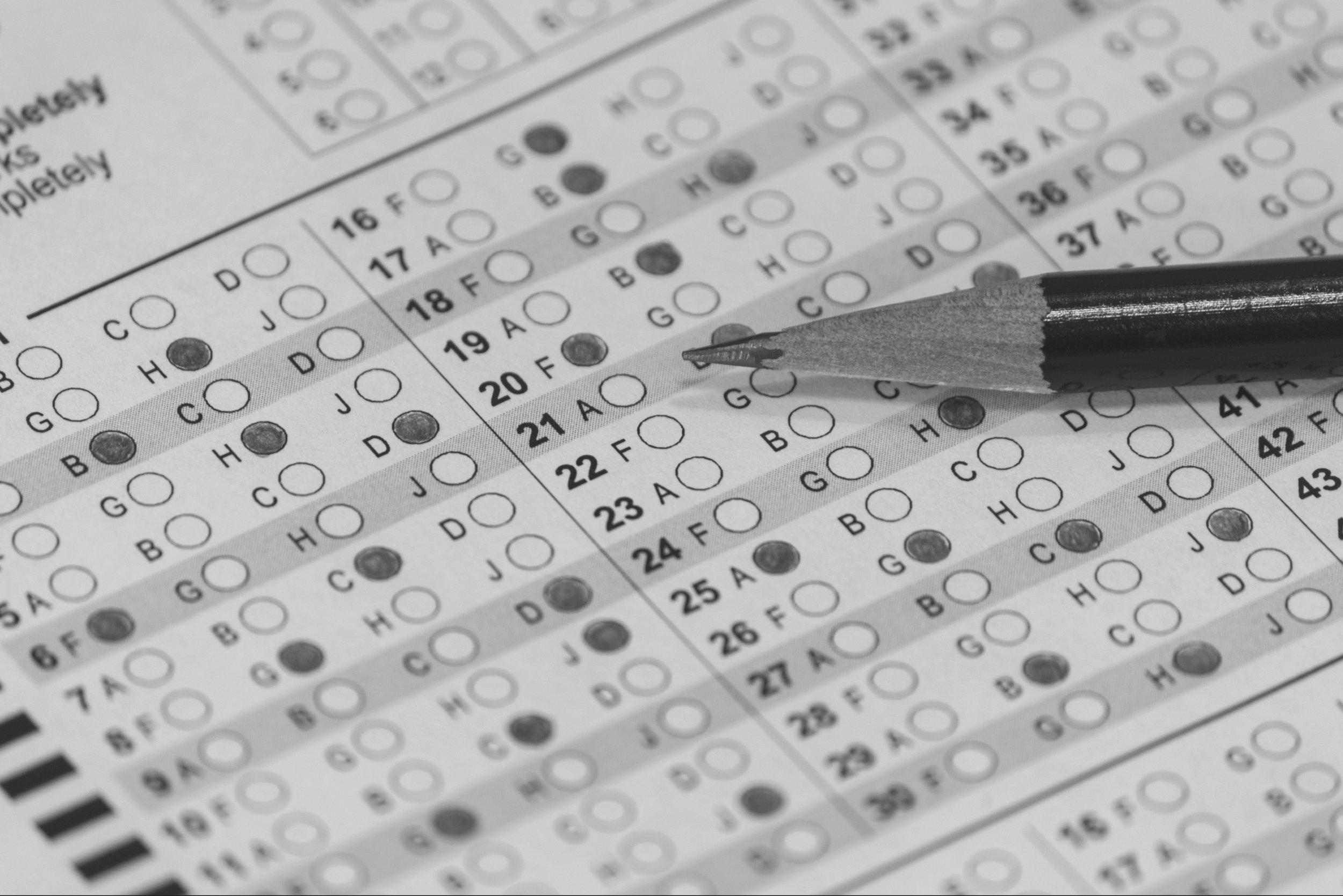
Assessment, Placement, and Skill Development
One of the most determinative factors of whether a student will graduate from college is where they begin in the math and English curricula. Historically, colleges have overrelied on placement tests, which tend to under-place students in math and English to the detriment of their chances of graduating. How can colleges ensure accurate assessment of students’ readiness through multiple measures assessment and placement, and how can they maximize students’ likelihood of achieving college-level competency in basic subjects with proven supports like corequisite courses?
Do the Details of Corequisite Supports Matter?
2022
Peter Riley Bahr, Kennan Cepa, Heather McKay, Daniel Douglas, and Suzanne Michael
Strong Start to Finish and the Education Commission of the States
https://strongstart.org/resource/do-the-details-of-corequisite-supports-matter/
Community college systems and individual colleges have made considerable investments in corequisite supports, and these supports have been implemented in myriad ways. Yet, despite overall favorable evidence of improvements, we know remarkably little about how to design corequisite supports to maximize students’ success. This report examines corequsite designs of math and English courses across the Colorado Community Colleges System to identify the features of corequisite support courses that are most strongly associated with students’ short- and long-term outcomes.
Topics: Assessment, Placement, and Skill Development
Refining Corequisite Supports to Boost Student Success
2022
Peter Bahr, Kennan Cepa, and Heather McKay
Strong Start to Finish and the Education Commission of the States
https://strongstart.org/2022/07/refining-corequisite-supports-to-boost-student-success/
Every year, a majority of students entering community college for the first time are assessed as needing remediation in math or English. Historically, colleges have directed them to enroll in developmental courses, where they spend time and money without accruing credits toward a college degree. But, too often, the developmental coursework that was intended to “insure” against failing college-level math and English instead has been a costly barrier to students’ progress and increased their risk of dropping out of college. To address this problem, community colleges in a number of states are choosing to forgo developmental coursework and enroll students directly in college-level courses with concurrent corequisites, in which they can receive supplemental instruction and support. This corequisite support model, sometimes referred to as “just-in-time remediation,” has shown particularly promising results with respect to improving students’ chances of completing college courses in math and English. Yet, despite considerable investments in corequisite supports, we still need to learn how to design them to maximize students’ success.
Topics: Assessment, Placement, and Skill Development
Patterns of STEM-Math Enrollment and Completion
2022
Heather McKay, Peter Riley Bahr, Suzanne Michael, Daniel Douglas, James Boyle, Marilyn Smith
Strong Start to Finish and the Education Commission of the States
https://strongstart.org/resource/patterns-of-stem-math-enrollment-and-completion/
In today’s technological and knowledge based economy, both community and four-year colleges have worked to increase entry into STEM education and ensure student success. This report examines issues of equity in access to STEM programs within the context of the Colorado Community College System and suggest practices and policies to promote equity based on these findings.
Topics: STEM; Assessment, Placement, and Skill Development
Improving Placement Accuracy in California’s Community Colleges Using Multiple Measures of High School Achievement
2019
Peter Riley Bahr, Loris P. Fagioli, John Hetts, Craig Hayward, Terrence Willett, Daniel Lamoree, Mallory A. Newell, Ken Sorey, and Rachel B. Baker
Community College Review
https://doi.org/10.1177/0091552119840705
Standardized placement tests remain the primary means by which new community college students are assessed and placed in the hierarchy of math and English coursework. A growing body of evidence indicates that placement tests tend to underestimate students’ likelihood of achieving passing grades in college-level courses, leading to students being misplaced in developmental coursework, slowing their academic progress, and increasing their likelihood of dropping out of college. This article discusses the results of a statewide research effort to improve the accuracy of student placement in math and English in the California Community College system.
Topics: Assessment, Placement, and Skill Development
Knowing is Half the Battle, or Is It? A Randomized Experiment of the Impact of Supplemental Notification Letters on Placement Exam Participation, Preparation, and Performance
2019
Brian G. Moss, Peter Riley Bahr, Leigh Arsenault, and Meghan Oster
Research in Higher Education
https://doi.org/10.1007/s11162-018-9536-9
Community college students often are unaware of the stakes involved in their performance on placement exams, used to sort the students into their first math and English courses. In our randomized experiment of approximately 13,000 newly admitted community college students, we test whether informing students, via a supplemental notification letter, about the implications of placement exam scores influences their placement exam participation, preparation, and performance. We also test whether message framing (loss-framed vs. gain-framed) alters the effect of the information on study outcomes. We find that neither type of message has an effect on placement exam preparation or performance. We find limited evidence to suggest that the loss-framed message may have a small effect on the avoidance of placement exams by increasing the likelihood of students’ submitting alternative evidence of academic preparation. Overall, our evidence suggests that students’ prior knowledge about the ramifications of placement exams is not enough to improve performance. Colleges should consider alternative means of assessing college readiness, such as measures of high school achievement, and should provide students who still have to take placement exams with detailed information about test content and study materials before testing.
Topics: Assessment, Placement, and Skills Development
Multiple Paths Forward: Diversifying Mathematics as a Strategy for College Success
2018
Pamela Burdman, Kathy Booth, Chris Thorn, Peter Riley Bahr, Jon McNaughtan, and Grant Jackson
WestEd and Just Equations
https://www.wested.org/resources/multiple-paths-forward-executive-summary/
California community colleges are implementing a new law, AB 705, that is intended to improve students’ completion of college degrees and credentials. A central objective of the law is to increase students’ likelihood of completing math requirements in one year or less. Providing students with multiple pathways to fulfill those requirements is one strategy California community colleges can use to achieve that objective.
Topics: Assessment, Placement, and Skills Development; STEM
Replacing Placement Tests in Michigan’s Community Colleges
2016
Peter Riley Bahr
Center for the Study of Higher and Postsecondary Education, University of Michigan
https://www.dropbox.com/s/pcqe8vuejff4uu8/Bahr%202016%20Placement%20Tests.pdf
Research on developmental education in community colleges indicates that a large fraction of the students who are assigned to remedial coursework in math, writing, or reading ultimately will not advance to or complete college-level coursework in the subject. Work on this problem has focused largely on how to modify developmental coursework and adjust curricular pathways to improve students’ outcomes. Still, despite progress in improving developmental pathways in community colleges, the mechanisms for assessing the skills of new community college students and placing them in the math and English curricula remain problematic obstacles to students’ successful achievement of college-level competency in basic subjects. Assessment and placement in community colleges has depended heavily on placement exams administered shortly after admission. Research indicates that these placement exams frequently misplace students in the curriculum, and that students more often are placed in coursework that is below their potential than in coursework that is above their potential (Willett, et al., 2015). In other words, students’ potential is more likely to be underestimated by placement exams than it is to be overestimated. The result is an elevated risk of attrition from college, which undoubtedly is related to the unnecessary expenditure of time, money, and effort completing remedial courses to prepare for college-level coursework in which the students often would have succeeded without the developmental intervention. In this study, I identify alternatives to placement tests that are available to community colleges in Michigan that are at least equally informative regarding students’ likelihood of succeeding in college-level coursework.
Topics: Assessment, Placement, and Skill Development
Using Multiple Measures for Placement in Mathematics and English
2016
Peter Riley Bahr, Erica Lee Orians, and Jennifer Ballard Schanker
Michigan Center for Student Success
Mathematics Placement Brief
Assessment and placement in community colleges has depended heavily on placement exams administered shortly after admission. Research indicates that these placement exams frequently misplace students in the curriculum, and that students more often are placed in coursework that is below their potential than they are in coursework that is above their potential. The decisions by ACT to phase out the widely used Compass placement test and Michigan’s move from administering the SAT instead of the ACT have added a new sense of urgency to improving assessment and placement processes in community colleges. Colleges either must invest limited financial and administrative resources in identifying and implementing an alternative placement test or else rely on other types of information to place students.
These two briefs summarize the results of studies that examined the relationships between a student’s grade in in his/her first college-level mathematics course and college-level composition course and several sets of predictors, including Compass placement exam scores, scores on the Michigan Merit Exam (MME), scores on the ACT portion of the MME, and cumulative high school grade point average. To determine which may serve as substitutes for Compass, the study compared sets of predictors with respect to their capacity to predict student performance in mathematics and English Composition.
Topics: Assessment, Placement, and Skill Development
The Aftermath of Remedial Math: Investigating the Low Rate of Certificate Completion Among Remedial Math Students
2013
Peter Riley Bahr
Research in Higher Education
https://doi.org/10.1007/s11162-012-9281-4
Nationally, a majority of community college students require remedial assistance with mathematics, but comparatively few students who begin the remedial math sequence ultimately complete it and achieve college-level math competency. The academic outcomes of students who begin the sequence but do not complete it are disproportionately unfavorable: most students depart from the community college without a credential and without transferring to a four-year institution. Interestingly, however, many of these students continue to attend the community college after they exit the remedial math sequence, sometimes for an extended period. One is led to ask why students who do not complete the sequence generally are not finding their way to an alternative credential objective that does not require college-level math competency, such as a career and technical education certificate, sometimes referred to as a vocational certificate. In this study, the author explores three possible answers to this question, including difficulty navigating to the alternative credential, declining participation in the community college, and declining academic performance. The author found that all three of these explanations contribute (to varying degrees) to explaining the low rate of certificate completion among remedial math students who do not achieve college-level math competency.
Topics: Assessment, Placement, and Skill Development; Career and Technical Education
Deconstructing Remediation in the Community College: Exploring Associations Between Course-Taking Patterns, Course Outcomes, and Attrition From the Remedial Math and Remedial Writing Sequences
2012
Peter Riley Bahr
Research in Higher Education
https://doi.org/10.1007/s11162-011-9243-2
Each year, a sizeable percentage of community college students enroll in remedial coursework to address skill deficiencies in math, writing, and/or reading. Unfortunately, the majority of these students do not attain college-level competency in the subjects in which they require remedial assistance. Moreover, students whose point of entry into the remedial sequence is at the lower end of the hierarchy of skill suffer the lowest rates of attainment by far. Yet, to date, we do not understand fully why students who begin at the lower end of the remedial sequence are so much less likely than are students who begin at the higher end to attain college-level competency. The purpose of this study is to illuminate the junctures in the remedial sequences in math and writing at which meaningful attrition of students is occurring and, in particular, the junctures at which “low-skill” remedial students suffer differential attrition relative to “high-skill” remedial students. To accomplish this end, the author used data that address students in California’s community colleges to examine three ways of characterizing and explaining the differential in college-level skill attainment between low- and high-skill remedial math students and, separately, between low- and high-skill remedial writing students. The three characterizations include nonspecific attrition, skill-specific attrition, and course-specific attrition. The author found that each of these characterizations contributes to explaining the differential in college-level skill attainment between low- and high-skill remedial students.
Topics: Assessment, Placement, and Skill Development
Preparing the Underprepared: An Analysis of Racial Disparities in Postsecondary Mathematics Remediation
2010
Peter Riley Bahr
Journal of Higher Education
https://doi.org/10.1080/00221546.2010.11779049
It would be difficult to overestimate the pivotal role of postsecondary remediation for higher education in the U.S. Taking into account the importance of educational attainment as a predictor of socioeconomic outcomes, remedial coursework represents a lifeline in the ascent to financial and social-structural stability for individuals who face significant deficiencies in foundational subjects. In fact, remediation is distinctive in higher education because, rather than sifting and sorting individuals into strata of attainment, it aims to equalize attainment between advantaged and disadvantaged groups. As Bahr (2008a) explained, “remediation is, by definition, a ‘remedy’ intended to restore opportunity to those who otherwise may be relegated to meager wages, poor working conditions, and other consequences of socioeconomic marginalization” (p. 422). In light of this objective, one would hope that students of historically disadvantaged and advantaged groups would benefit equally from remediation, advancing up to college-level proficiency in core subjects at comparable rates. Yet, this is not the case. As will be shown here, rates of successful remediation in math—the subject in which the greatest number of students require assistance—differ substantially by race. Groups that tend to be disadvantaged in math achievement generally, namely Blacks and Hispanics, also experience low rates of successful remediation.
In this study, I first quantify the racial gap in successful remediation in math, using data that address a population of first-time freshmen. I then use nested hierarchical logistic regression to test the relative and cumulative contribution to these observed racial disparities of five potential mediating variables. In addition, I test the moderating effect of college racial composition on the likelihood of successful remediation. Finally, I use hierarchical multinomial logistic regression to test the relative efficacy of remediation across racial groups.
Topics: Assessment, Placement, and Skill Development
Revisiting the Efficacy of Postsecondary Remediation: The Moderating Effects of Depth/Breadth of Deficiency
2010
Peter Riley Bahr
Review of Higher Education
https://doi.org/10.1353/rhe.0.0128
Postsecondary remediation is an important and highly contentious issue that has received comparatively little comprehensive attention with respect to evaluating its effectiveness. This study addresses two relatively unexplored aspects of remedial efficacy: the moderating effects of depth and breadth of underpreparation. I find that, regardless of the depth or breadth of students' initial deficiencies, students who achieve college-level competency in English and math generally exhibit similar levels of attainment. This finding supports the efficacy of remediation even for students who face the greatest deficiencies in English or math and those who have dual deficiencies in both English and math.
Topics: Assessment, Placement, and Skill Development
Making Sense of Disparities in Mathematics Remediation: What is the Role of Student Retention?
2010
Peter Riley Bahr
Journal of College Student Retention
https://doi.org/10.2190/CS.12.1.c
Recent research on mathematics remediation in community colleges indicates that there are large differences in the rate of successful remediation between students of differing levels of initial math deficiency. One might presume that these “skill gaps” in successful remediation are a result of differing rates of student retention. That is, presumably poorer math skills are associated with a shorter duration of college attendance (lower persistence) and, in turn, a shorter duration of college attendance is associated with a lower likelihood of successful remediation. However, the limited prior evidence does not appear to support this explanation for the “skill gaps” in successful remediation. In an effort to make sense of this incongruity, the author executed a detailed analysis of the relationship between level of math deficiency at college entry, persistence, and successful remediation in math. In contrast to the conclusions of prior work, the author found that differences in persistence contribute strongly to the “skill gaps” in successful remediation, although this contribution is masked by the fact that the relationship between persistence and the likelihood successful remediation is neither proportional nor equal across levels of initial math deficiency, both of which were implicit analytical assumptions of prior work on this topic.
Topics: Assessment, Placement, and Skill Development
Cooling Out in the Community College: What is the Effect of Academic Advising on Students’ Chances of Success?
2008
Peter Riley Bahr
Research in Higher Education
https://doi.org/10.1007/s11162-008-9100-0
Burton Clark’s proposition concerning the cooling out of underprepared students in community colleges has a controversial history and remains a point of contention. Central to Clark’s description of the cooling out process is the academic counselor, whose job it is to dissuade underprepared students from goals perceived to be overambitious and ease these students into lesser, presumably better-fitting academic trajectories. In this study, a number of hypotheses concerning the effect of advising on students’ chances of attaining their goals are tested. The study seeks to determine what effect advising has on students’ attainment, and whether this effect is dependent upon students’ academic preparation, students’ race/ethnicity, the racial/ethnic composition of the college, or the representation of underprepared students in the college. Hierarchical discrete-time event history analysis is used to analyze data that address two subsets of the Fall 1995 cohort of first-time freshmen who enrolled in any of California’s 107 semester-based community colleges. Advising is found to be actively beneficial to students’ chances of success, and all the more so for students who face academic deficiencies, which contradicts deductions drawn from Clark’s description of the active role of counselors in the cooling out process.
Topics: Assessment, Placement, and Skill Development
Does Mathematics Remediation Work?: A Comparative Analysis of Academic Attainment Among Community College Students
2008
Peter Riley Bahr
Research in Higher Education
https://doi.org/10.1007/s11162-008-9089-4
Postsecondary remediation is a controversial topic. On one hand, it fills an important and sizeable niche in higher education. On the other hand, critics argue that it wastes tax dollars, diminishes academic standards, and demoralizes faculty. Yet, despite the ongoing debate, few comprehensive, large-scale, multi-institutional evaluations of remedial programs have been published in recent memory. The study presented here constitutes a step forward in rectifying this deficit in the literature, with particular attention to testing the efficacy of remedial math programs. In this study, I use hierarchical multinomial logistic regression to analyze data that address a population of 85,894 freshmen, enrolled in 107 community colleges, for the purpose of comparing the long-term academic outcomes of students who remediate successfully (achieve college-level math skill) with those of students who achieve college-level math skill without remedial assistance. The study found that these two groups of students experience comparable outcomes, which indicates that remedial math programs are highly effective at resolving skill deficiencies.
Topics: Assessment, Placement, and Skill Development
Course-Taking Patterns, Policies, and Practices in Developmental Education in the California Community Colleges
2010
Mary Perry, Peter Riley Bahr, Matthew Rosin, and Kathryn Morgan Woodward
EdSource
https://files.eric.ed.gov/fulltext/ED512364.pdf
The visibility of developmental education—or basic skills education as it is called most often in California—has increased in recent years. One major catalyst was a comprehensive community college strategic planning process completed in 2004 that listed basic skills as a critical area of focus. Another was an increase in the system’s minimum course-taking requirements for the associate degree. These helped pave the way for the state’s Basic Skills Initiative (BSI) and greater public reporting of basic skills outcomes through the new Basic Skills Accountability Report. These policy actions underscore the place of developmental education as a cornerstone of the work and purpose of the California Community Colleges. This study has two parts. The quantitative section describes remedial course-taking patterns in the community colleges and examines the correspondence between those patterns and various student outcomes. The qualitative sections examine research and opinion on related policies and practices both historically and looking forward.
Topics: Assessment, Placement, and Skill Development
PISA 2006 and the Participation of Students with Special Educational Needs
2009
Barbara LeRoy, Preethy Samuel, and Peter Riley Bahr
Students with Disabilities, Learning Difficulties and Disadvantages in the Baltic States, South Eastern Europe and Malta: Educational Policies and Indicators
https://doi.org/10.1787/9789264076860-en
Interest in the inclusion of students with special educational needs in mainstream education has increased faster than the actual inclusion of these students in standardised assessment and accountability systems. This chapter discusses the participation and performance of students with special education needs in the Baltic and South Eastern European countries (Croatia, Estonia, Latvia, Lithuania, Serbia, and Slovenia) in PISA 2006. This chapter describes the participation rates by countries and the demographic characteristics of the students with special educational needs as a group, as well as by their disability status. Students’ educational experiences and perceptions are presented as well as their perceptions of their learning behaviours. In general, too few students with special education needs are included in PISA from not enough economies and the conclusions that can be drawn are therefore extremely limited.
Topics: Assessment, Placement, and Skill Development
Double Jeopardy: Testing the Effects of Multiple Basic Skill Deficiencies on Successful Remediation
2007
Peter Riley Bahr
Research in Higher Education
https://doi.org/10.1007/s11162-006-9047-y
Prior research has established that the depth and breadth of remedial need in basic skills (math and English) exhibited by a student at college entry are strongly and negatively associated with the likelihood of achieving college-level competency in those subjects (i.e., successful remediation). This well-documented finding is built upon a body of work employing either simple bivariate analyses or regression analyses that assume additive effects. Yet, there are reasons to suspect that multiple basic skill deficiencies, rather than exhibiting additive effects alone, may exhibit a negative multiplicative interaction effect on the likelihood of successful remediation. In this research, the author tests the hypothesis that the negative effect of math deficiency increases in magnitude with decreasing English competency. Although the data support this hypothesis, the author found that this interaction does not have substantive importance in the face of the powerful direct effect of math deficiency on the likelihood of successful remediation in math.
Topics: Assessment, Placement, and Skill Development
















